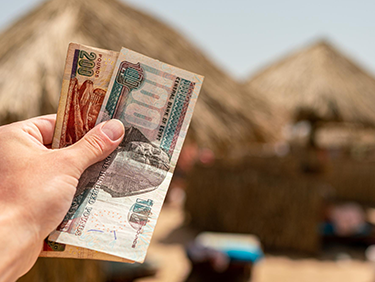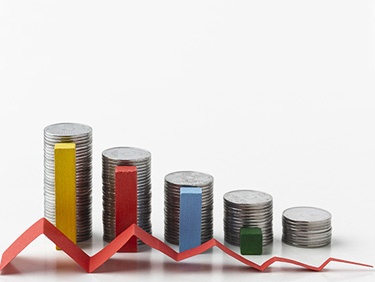-
In light of Egypt’s macro economy developments and the geopolitical conditions, HC Securities & Investment www.hc-si.com expects the CBE to maintain interest rates at its upcoming July 10, 2025 meeting.
Financials analyst and economist at HC, Heba Monir commented: “Egypt’s external position showed resilience during the turbulent regional geopolitical tensions in June, demonstrated in: (1) the FX flexibility with the USD/EGP rate reaching EGP49.6/USD by the end of June, almost unchanged m-o-m, (2) Egypt 1-year CDS retreating to 301 bps from 333 bps at the beginning of the year, (3) foreign investors were net buyers in the secondary market of Egyptian treasuries by EGP1.2bn in June due to the attractive treasury yields, despite some foreign outflows during June due to the Israel-Iran war, which cuased interbank volume to reach as high as USD800m in mid-June, higher than the daily average of USD150m–250m, and (4) Egypt’s worker remittances surged c39% y-o-y in April to USD3.0bn with a c77% y-o-y hike in 10M24/25 to USD29.4bn, reflecting confidence in the FX liquidity in Egypt. Domestically, the PMI index increased to 49.5 in May from 48.5 in April, still below the 50.0 mark, helped by the renewed growth in the manufacturing sector. However, many key PMI metrics indicated a deterioration in the business conditions in May. However, we expect some inflationary pressures in July as the Egyptian Parliament approved this week some amendments to the Value Added Tax (VAT) Law for some businesses, including cigarettes and tobacco, as cigarette prices are expected to increase by c16% within days besides a potential increase in electricity prices due to higher natural gas prices. Also, U.S. President Donald Trump said he was not thinking of extending the 9 July deadline for countries to negotiate trade deals with the U.S., suggesting higher tariffs to resume, which could lead to higher global inflation. As for the attractiveness of Egypt’s carry trade, the latest 12M T-bills auction of 24.833% implies a positive yield of 5.21% using our 12M inflation estimate of 16.03% (after deducting a 15% tax rate for European and US investors). Also, the average required rate of return by foreign investors on the 12M T-bills declined to 27.2% from 28.0% in May, based on our calculations, suggesting that Egypt’s Carry Trade remains attractive, especially considering further rate cuts by other developed economies. Based on our expectation of domestic inflationary pressures, geopolitical tensions, and tariff threats in July, we expect the MPC to maintain policy rates at its upcoming 10 July meeting.”
It is worth mentioning that, at its 22 May meeting, the Monetary Policy Committee (MPC) of the Central Bank of Egypt www.cbe.org.eg cut the benchmark overnight deposit and lending rates by 100 bps to 24.0% and 25.0%, respectively, for the second time, after it had cut policy rates by 225 bps on 17 April, reversing a total of 325 bps of the 1,900 bps rate hikes since the CBE started its tightening policy in 2022. Egypt’s annual headline inflation accelerated to 16.8% in May from 13.6% in April, according to the Central Agency for Public Mobilization and Statistics (CAPMAS) data. Monthly prices increased 1.9% m-o-m compared to a 1.3% m-o-m increase in April. On the global front, on 18 June, the U.S. Federal Reserve maintained the target range for the federal funds rate at 4.25-4.50%, leaving the total cuts at 100 bps after it hiked rates by 525 bps since it started tightening policy in 2022, while the European Central Bank (ECB) lowered the key ECB interest rates for the deposit facility, the main refinancing operations and the marginal lending facility by 25 bps on 5 June to 2.00%, 2.15% and 2.40%, respectively, bringing total cuts to 200 bps, since it started cutting rates in June 2024 after it hiked rates by 450 bps since it started its tightening policy in 2022. Based on Egypt’s current economic situation, we present below our expectations for the possible outcome of the 22 May MPC meeting.
About HC Securities & Investment
HC Securities & Investment is a leading investment bank in Egypt and the MENA region. Since its inception in 1996, HC has utilized its relationship-driven insights, local and regional market knowledge, and industry-specific expertise and strong execution capabilities to provide its clients with a wide range of services in investment banking, asset management, securities brokerage, research, custody and online trading through its offices in Egypt and the UAE (DIFC). HC Investment Banking has an outstanding track record of advising leading corporates in Egypt and the MENA region on M&A, capital market, and financing transactions in excess of USD6.6bn. HC Asset Management now manages 7 mutual funds for commercial banks and portfolios for institutions and sovereign wealth funds with assets under management in excess of EGP4bn. HC Brokerage is ranked among the top brokers in Egypt and provides a wide array of services, including research and online trading to institutional and retail clients.









